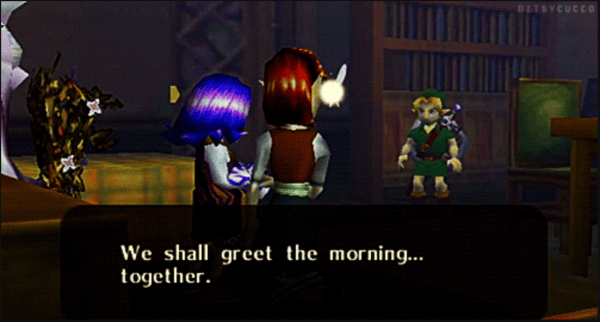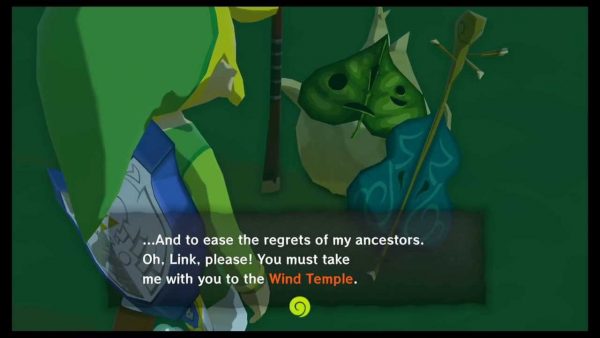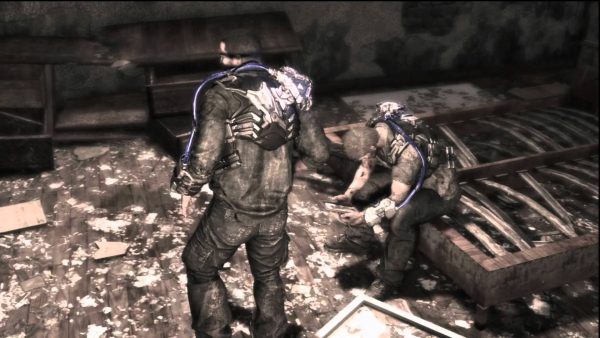The other day, a discussion erupted around the water cooler at work. It’s not an actual water cooler, obviously, but y’know. The discussion was about our top Legend of Zelda games – a ritual that is mandated after every release.
For many of our group, Breath of the Wild was top of the pops. But for me, Majora’s Mask still held that honour.
Why? Because Majora’s Mask means something. What you do in Majora’s Mask matters.
This is bigger than simply Zelda titles but they’re a nice example of this concept. If we take the genre of action RPG a bit more broadly; these games are journeys.
Stories take the hero from point A to B. We grow and change. But for these games to drive the action, your character and his/her journey has to mean something.
What this means is how games ascribe meaning is wholly important.

So What’s the Point?
Journeys are all about our place in the world. They tell the tale of how our action (or inaction) affects the world at large. In situations where our impact is high, we ascribe more meaning to the narrative. In situations where our impact is low, there is less reason for us to continue.
It might sound a little obvious but it’s how games create the feeling of us impacting the world that’s tricky. Typically, tension in the journey is derived from the threatening results of inaction. This means that we’re either moving towards something undesirable or on from something validating our efforts.
Lets use this structure to analyse Breath of the Wild and compare it to something further down my list: The Wind Waker. Does inaction lead us toward an unfavourable outcome?
For Breath of the Wild, yes. If we do nothing, Zelda dies and Calamity Ganon consumes Hyrule. Pretty high stakes from the get go. The Wind Waker? Ganon continues his search for a blond girl with big ears when his target (Tetra) has green hair. In fact, if not for Aryll’s kidnapping, we wouldn’t bother leaving Outset Island.
Our second criterion: are we moving on from validation? Again, in Breath of the Wild, yes. I’ve written before about how Breath of the Wild is a story of redemption. As the player travels through each Divine Beast, we liberate the tormented souls of past champions. Each step gives us a reason to continue: we can make a sizeable impact therefore we must continue.
Wind Waker? Less so.
We travel to Forest Haven and rescue *a* miscreant Korok. Sure their festival is cute but it lacks the emotional rawness of avenging Urbosa’s final, climactic battle with Thunderblight Ganon.

What Keeps Us Moving?
Moving on from Zelda for the time being, I’d like to consider another game that successfully ascribes meaning to our journey: Infamous Second Son.
Infamous is particularly interesting because it’s key for understanding that these principles can be generalised to games that we wouldn’t immediately consider as journey games. Even GTA to use a somewhat dangerous example.
Ultimately, having a place in the world that matters is the impetus behind players continuing the engage with the game. If Infamous is our example, once you unlock the third power players don’t necessarily have a need to continue. By this point, we’ve experienced all the mechanics of the game (at this point, we don’t know about being rewarded with a fourth power after completing the story).
We’ve run up buildings, blown things up with our super abilities, and generally wreaked havoc. So why keep going? Because our place in Infamous meets our earlier criteria: we make a tangible difference in Seattle (high impact) and we’re faced with terrible and immediate consequences of inaction (rounding up and killing Conduits). Infamous sets us up to feel as though our input matters.
Of course we know that if we stop playing, the game will be ready to pick up where we left off. But while we inhabit the mind of our protagonist, we exist within that dynamic world. If our actions mean something, we are more engaged, we are more immersed. Thus, it’s difficult to stop ourselves from continuing.
![]()
A Closed Loop
Be warned, the next section contains spoilers for a few games, such as Dead Space and Inversion. Yes they’re older games but still.
I’ve made no secret in the past about games that employ certain narrative clichés. One of the more common ones is arbitrarily killing the player’s character. When handled poorly, it creates an unsatisfying closed narrative loop. It puts the player into a situation where we have little to no impact on the outcome of the story.
You might say we don’t actually have too much ability to change the outcome of the story in well-handled games. And this is true. If we take this with respect to our previous criteria, however, it tells a slightly different tale.
We said earlier that tension is derived from threats of inaction. Specifically, that inaction will take us towards an unfavourable outcome.
Narratives that unceremoniously dispose of their protagonists defy these pillars of story structure. The nature of games, especially in the case of Dead Space, is self-preservation. We assume the instincts of these characters and, as such, their deaths need to achieve things that align to our values.

It’s entirely unsatisfying for players because inaction now leads us to a more favourable outcome: survival. In these circumstances, action is what brings us to our ultimate demise.
These methods of attributing meaning to games and player experience are only some examples of how developers can achieve this.
However it is that they choose to ensure we feel as though we matter to the flow of events within the world, it’s a practice that needs to be observed.